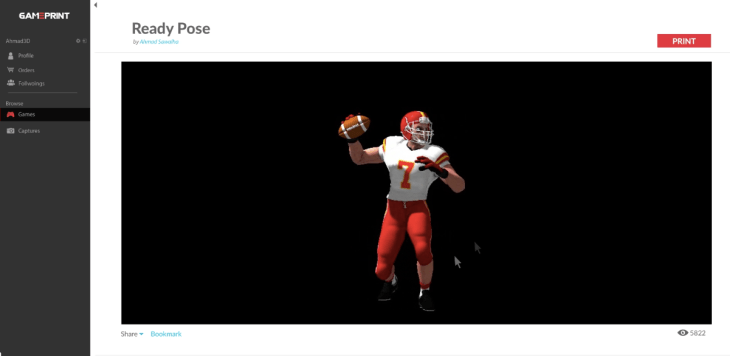San Francisco-based Mixed Dimensions, which makes software targeting the 3D printing space, has closed a $4 million Series A, with the funding round led by Silicon Valley investors Alsop Louie Partners and Dolby Family Ventures.
Existing investors, including its original investor Silicon Badia, also participated, joined by new investor Draper Athena and others. The new funding will be funneled into tech development of its core product and also for hiring aimed at growing market share.
We last covered Mixed Dimensions two years ago when its grand plan was to build a marketplace for 3D printable objects — to tap into what it assumed would be fast-flowing consumer demand to print all sorts of objects.
In the event it’s had to have a rethink, given 3D printing has plunged from peak hype, back in 2014, to the relative doldrums of low uptake and reduced expectation in 2016. There’s certainly no doubt that mass market commercialization of additive manufacturing has proved more fiddly and time-consuming than some envisaged.
Mixed Dimensions has thus retooled its original concept, and shifted focus from consumer to b2b. It is now pushing two products: MakePrintable, a cloud-based verifying/healing/repairing tool for 3D printing which it’s largely angling as a b2b product; and GamePrint, a consumer tool that enables gamers to 3D print a particular gameplay moment. Because nothing says “pwned ya!” quite like having a 3D model of the moment you pwned your gaming buddy sitting on your desk for posterity.
The startup was also previously hoping to have closed a Series A back in summer 2014, but co-founder Mo Taslaq says it has instead been working on its technology, while also, doubtless, adapting to the slower burn reality of 3D printing demand.
It launched a beta last October and Taslaq says it now has “several thousands” of users. It’s also been forging links with others in the space, inking partnerships with 3D printing services, CAD tools and marketplaces — including Thingiverse. So the thinking here looks to be about 3D printing players banding together to better serve what modest demand there is.
“3D printing has not exploded into a mainstream tech especially for consumers and there are many reasons for this whether hardware related, software related, or even general awareness/education on how 3D printing is a need to have versus a nice to have,” says Taslaq. “We decided to re-focus on our core competency which is building innovative technology and decided to tackle head-on one of the bigger issues in 3D printing today: printability.”
“Unlike most [3D model] healing solutions out there where the healing process is general and basic our tech takes into consideration the targeted print, [whatever] the final size of the print, the printer or material used, resulting in a fix tailored to the desired final print and our solution also handles some of the most advanced issues in 3D printing such as wall thickness,” he adds.
MakePrintable is “mainly targeting” other 3D printing companies — such as marketplaces like Shapeways — rather than being a direct-to-consumer play. While GamePrint is focused on a consumer niche, but one which the startup is betting will be faster on the uptake of nascent 3D printing than the average consumer.
“We came with the idea of GamePrint a couple of years ago when we realized that everyone wants to print something that is relevant to them and to their personal experiences and nothing can live to the expectations and streamline the process to a single click like capturing of gameplay moments,” he says, adding that the team has a gaming background, including previously building middleware tech for gaming engines like Unity.
“One of our advisors back then was also in the toy industry so when we had an aha moment: gamers are obsessed with their games, characters and gameplay, 3D printing can provide a way to print these games, all we needed to do is to make sure that the game scene is actually printable and voila you have gameprint!”
Mixed Dimensions is not the only company hoping 3D selfies might fire up consumer interest in additive manufacturing. Indeed, German company Doob has opened bricks and mortar stores in several cities around the world where consumers can walk in, get body scanned and pick up a 3D micro-replica of themselves at a later date. But the gaming selfie spin does at least address a more specific demographic — and get around the “uncanny valley” problem of trying to sell people a realistic 3D selfie.
In terms of main competitors at this point, Taslaq namechecks Materialise and Autodesk — including the latter’s recent acquisition, Netfabb.
